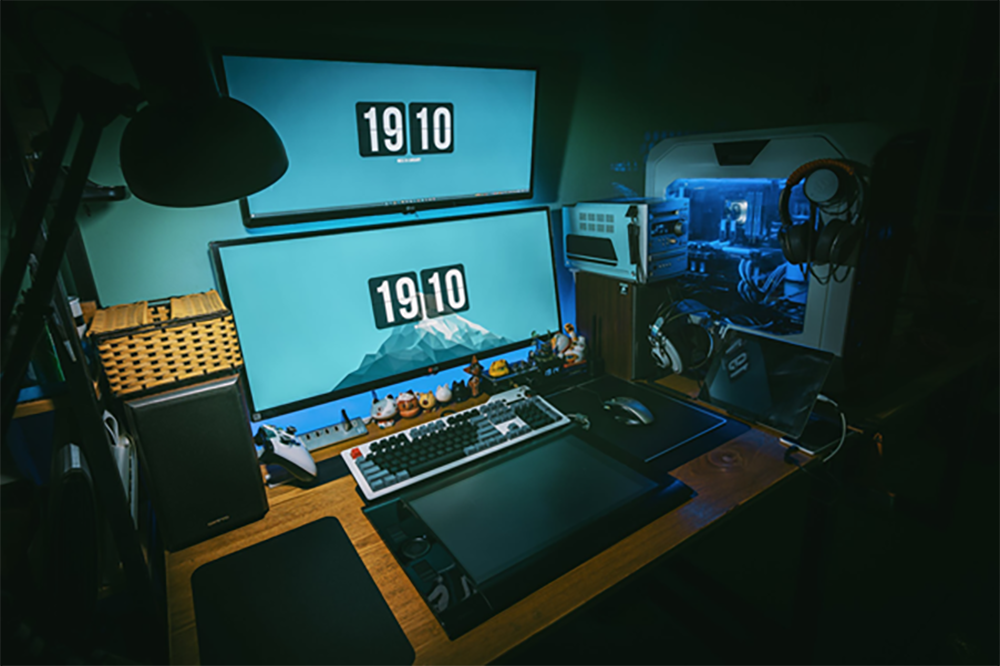The PC gaming market is set to grow through 2020. According to research studies, the global gaming market value is projected to grow to over $250 billion by 2025. Certainly, COVID-19 stay-at-home orders are increasing consumer demand as more people stay home. Of course, developers are also striving to meet this demand and enhance users’ gaming experiences. For example, companies are launching new platforms to make gaming more enjoyable and accessible. In addition, developers are innovating new technologies to streamline the creation process. As a PC game developer, it is essential to know the latest factors driving this market growth. This way, your enterprise can grow with the expanding ever-changing market. Read on to discover the most important factors driving PC game market growth through 2020.
Social Gaming Interfaces
First, social gaming interfaces are one of the major growth factors pushing market growth through 2020. Simply, these platforms operate like video games on social platforms. Over the past few years, developers have incorporated social gaming interfaces into their games. For example, some developers utilize in-game chat technology as well as call servers. Importantly, this socialization has been shown to increase the number of monthly active users (MAU). In addition, when users feel engaged and connected to the game, they tend to spend more time in-game. Over time, this leads to longer subscriptions and higher revenue. With COVID-19, social gaming interfaces have become crucial to games’ popularity and growth. Increasingly, users are turning to games as social platforms for entertainment as they stay at home. Certainly, social gaming interfaces are propelling market growth beyond 2020.
VR & AR Technologies
Next, virtual reality (VR) and artificial reality (AR) technologies are also driving the rising market demands. For example, many gaming enterprises are leveraging image tracking and identification tools to develop interactive user experiences. Typically, these companies use AR and VR software development kits (SDKs) to synthesize computer-generated objects with real-life imagery. Recent studies estimate over 70% of AR, VR, and mixed reality developers are focusing on VR systems for PC computers. As this trend grows in the industry sector, it is important to incorporate VR and AR technologies into your own developments. Surely, AR and VR has changed online gaming.
Advanced Container Registries
In addition, advanced container registries are also pushing PC game market growth. Once installed, you can use containerization software as a single access point to manage your Docker images. For example, a JFrog container registry supports Docker registries as well as Helm Chart repositories for your deployments. Notably, this container registry is reliable and scalable. In this way, it can grow with large and small development enterprises alike. Because container registries provide a streamlined storage solution, you can increase your gaming deployment efficiency as well. Certainly, you can program and test your applications faster. With faster deployments, advanced container registries are undoubtedly driving PC game development market growth.
Sports Game APIs
Moreover, sports game application programming interfaces (APIs) are also fueling PC game market growth this year. Due to the pandemic, many real-life sporting events have been cancelled. As a result, consumers are turning to eSports gaming platforms as an alternative. Using sports game APIs, developers can provide their users with streaming, schedules, as well as statistics. Additionally, these make it easier to set up leagues, leaderboards, and tournaments. Often, these interfaces allow users to create their own competitions easily and invite their friends as well. With this engagement, sports game APIs are certainly driving PC game market growth.
Cloud Servers
Furthermore, cloud servers are also adding to the overall PC game market size. Using cloud servers as your gaming platform makes your PC games more affordable and accessible for users. From a developers’ standpoint, this sets you up to increase your game’s popularity. Whether you monetize your game through advertisements or higher packages, higher game usage is sure to increase your revenue. In addition, cloud servers also offer increased security as you build and release your programs. Often, these servers are required to ensure compliance to protect your sensitive data. In this way, these servers are an excellent solution to empower cloud gaming.
There are several important factors driving PC game market growth through 2020. First, social gaming interfaces are making games more popular among users amidst the pandemic. Next, VR and AR technologies are also allowing developers to enhance gaming experiences. In addition, advanced container registries also increase development efficiency and provide reliable scalability to drive growth. Moreover, sports game APIs also streamline the sports game development process. Furthermore, cloud servers are also increasing games’ affordability and accessibility. Consider the factors mentioned above to learn why the PC gaming market is set to grow through 2020.


